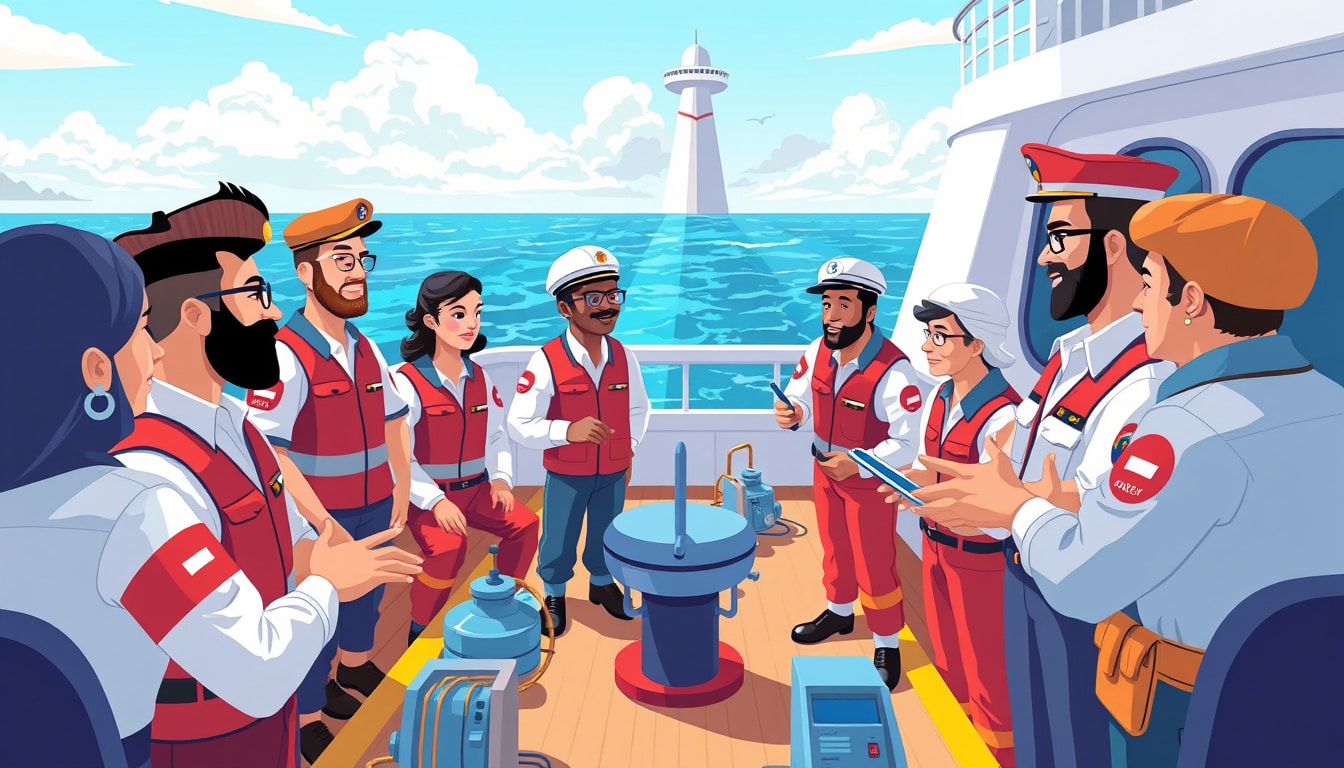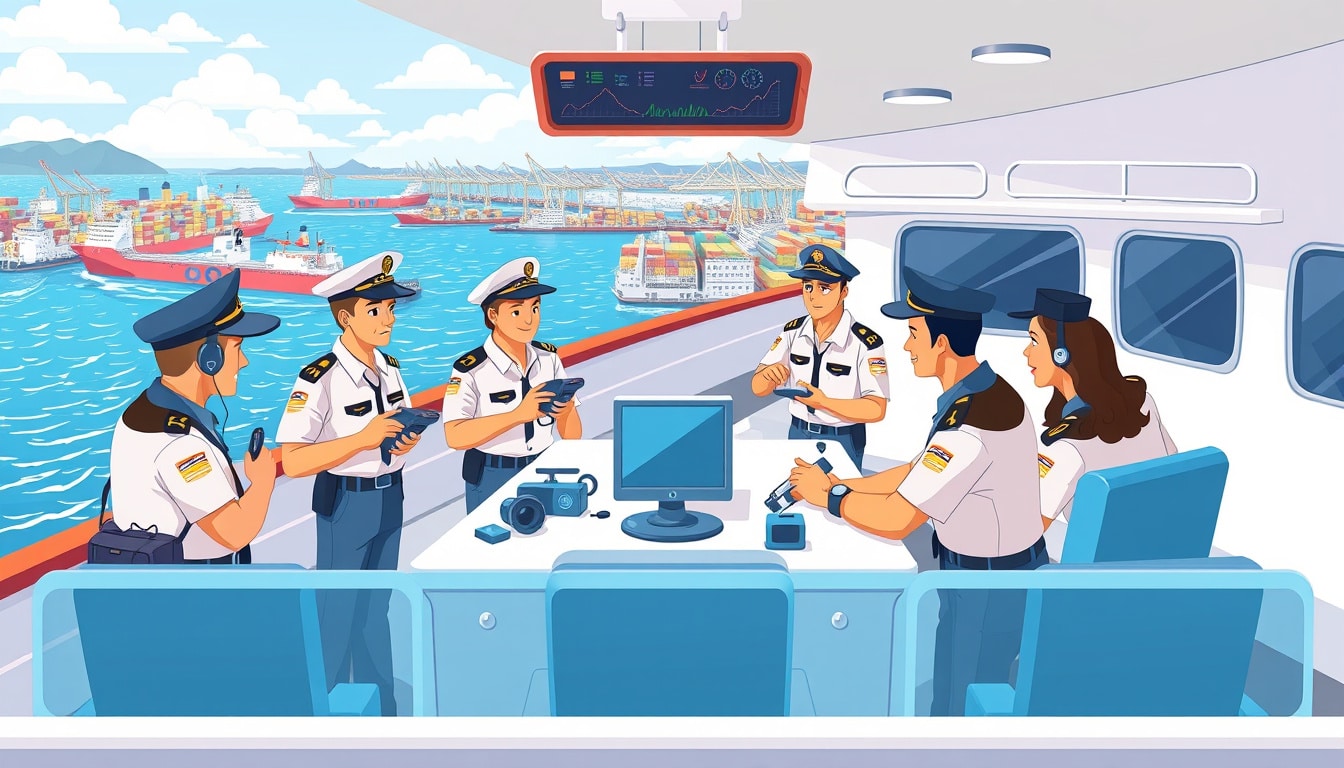In today’s increasingly complex maritime environment, ensuring security at port and marine facilities is paramount. Leaders in this field are tasked with safeguarding assets, cargo, and personnel against threats, making the role of a Port / Marine Facility Security Officer (PFSO/MFSO) critical to national and international trade. By earning the PFSO/MFSO certification, aspiring professionals not only enhance their skills and knowledge but also step into port security leadership. This article delves into the crucial responsibilities of a PFSO/MFSO, the importance of obtaining certification in maritime security, the steps required to achieve this certification, and the vast array of career opportunities available in the field.
Learn more about our Courses here!
Key Takeaways
- Port / Marine Facility Security Officers play a critical role in maintaining maritime security.
- Obtaining the PFSO/MFSO certification is essential for professional credibility in port security.
- The certification process includes comprehensive training and understanding of security protocols.
- Career advancement in port security is enhanced by acquiring the PFSO/MFSO certification.
- This certification opens up various leadership opportunities within the maritime industry.
Understanding the Role of a Port / Marine Facility Security Officer
The role of a Port / Marine Facility Security Officer (PFSO/MFSO) is critical in safeguarding our maritime environments against various threats and ensuring the security of facilities and operations. As an appointed security leader, the PFSO/MFSO is responsible for developing and implementing comprehensive security plans that meet federal regulations and protect against potential breaches. With the ever-evolving landscape of maritime security, stepping into port security leadership with a PFSO/MFSO certification not only equips individuals with essential knowledge and skills but also enhances their career prospects in this vital sector. This certification covers key aspects like risk assessment, security measures, and incident response, essential for effectively managing security risks at ports and marine facilities. By obtaining certification, aspiring security professionals demonstrate their commitment to excellence and readiness to handle complex security challenges, contributing significantly to the safety and efficiency of global trade.
Importance of PFSO/MFSO Certification in Maritime Security
In the ever-evolving landscape of maritime operations, securing our ports and marine facilities is paramount. This is where the Port / Marine Facility Security Officer (PFSO/MFSO) Certification comes into play, acting as a crucial stepping stone for professionals eager to lead in maritime security. By obtaining this certification, individuals not only enhance their knowledge of security protocols and responsibilities but also demonstrate their commitment to safeguarding critical infrastructures against potential threats. Recognizing the importance of effective security measures, the PFSO/MFSO certification equips officers with the tools necessary to assess vulnerabilities, implement security plans, and ensure compliance with international maritime regulations like the ISPS Code. Expanding one’s skill set through this certification not only furthers personal career goals but significantly contributes to the overall safety and resilience of maritime operations, solidifying one’s role as a leader in port security.
‘Leadership is not about being in charge. It’s about taking care of those in your charge.’ – Simon Sinek
Learn more about our Courses here!
Steps to Achieve PFSO/MFSO Certification
Achieving the Port / Marine Facility Security Officer (PFSO/MFSO) Certification is an essential step for professionals seeking to step into port security leadership. The certification process is designed to equip individuals with the knowledge and skills necessary to effectively manage security measures at maritime facilities. To begin your journey, you must first familiarize yourself with the International Ship and Port Facility Security (ISPS) Code, which lays the groundwork for maritime security regulations globally. Next, consider enrolling in an accredited training program that provides comprehensive coverage of security assessments, threat detection, and emergency response planning. After completing your coursework, you will need to pass a qualifying exam to demonstrate your competency in the subject matter. Finally, maintaining active certification involves continuing education and staying updated on the evolving landscape of port security. By following these crucial steps, you will not only earn your PFSO/MFSO Certification but also assert yourself as a leader in port security.
Career Opportunities and Advancement in Port Security
In the dynamic field of port security, there are numerous career opportunities available for those seeking advancement and specialization. One of the most sought-after qualifications is the Port / Marine Facility Security Officer (PFSO/MFSO) certification, a critical credential that can significantly bolster your career prospects. By obtaining this certification, you not only demonstrate your understanding of security protocols and regulatory compliance specific to port operations, but you also position yourself as a leader in the field. As global trade continues to expand, the demand for skilled professionals in port security is on the rise, creating a plethora of job roles ranging from security assessments to crisis management. Engaging in ongoing education and networking within the industry can further enhance your chances of stepping into higher-level roles, establishing you as an invaluable asset to your organization. Whether you are starting your journey in port security or looking to elevate your career, the PFSO/MFSO certification provides the foundational knowledge and credibility to help you succeed in this vital sector.
À Propos de Nous
Académie Maritime Virtuelle (VMA) is a leading provider of online maritime education and training, offering a wide range of courses designed to meet the needs of the global maritime industry. With a commitment to quality and innovation, Virtual Maritime Academy is dedicated to preparing seafarers and maritime professionals for success in their careers. Now a DNV Certified Maritime Training Provider, the academy upholds the highest standards of excellence in training and education.













